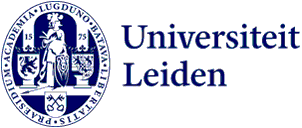
Policing as the dominant theme in Saniye Çelik’s career: from police officer to Professor of Diversity and Inclusion
She started her career in the police force, walking the beat as an officer. Now she has been installed as Professor by Special Appointment of Diversity, Inclusion and Policing at Leiden University. Things have come full circle for Saniye Çelik. ‘It's very special.’

Saniye Çelik's chair is embedded within the Policing Studies Team, part of the Intelligence and Security research group at the Institute of Security and Global Affairs (ISGA). Çelik is a lecturer in Diversity and Inclusion at Leiden University of Applied Sciences and has been a trainer for years at Leiden University's Centre for Professional Learning (CPL), where she provides courses on this topic. ‘In addition, I conduct research on and within the police.’
Further professionalisation of the police force
Jaco van Hoorn, working within the police force on the relationship between the police and science, sees the chair as a means to connect the police and science. ‘There is a need within the organisation to acquire more scientific knowledge around this very important social issue. We use that knowledge to further professionalise the police in this area as well.’ The goal is clear. ‘We want an answer to the question: how can we be an attractive employer in a safe organisation with inclusive leadership where everyone feels at home?’
Engaging in dialogue not from emotion, but from knowledge
Celik agrees the subject is a hot topic within the police force. ‘The police have always been pioneers in the theme of diversity and inclusion. It might be strange to say this at a time when the police are under such scrutiny, but if you go back in time, you discover that the police force has been working on it for at least 40 years.’ She continues: ‘Emotion usually dominates public debate and discussions about diversity and inclusion, when knowledge and insight should be leading. The police are now at the point of facilitating the organisation based on research and science. It is also of great interest to other public domains that the police are going to study the topic further and in greater depth.'
Within the Policing Studies research group,Çelik will give the theme of diversity and inclusion a place in research and teaching. There will also be PhD programmes. There is a high level of interest in policing themes among students, both within the university and the Police Academy. Van Hoorn: 'I am very happy with the Police Studies research group. There has always been a great deal of research into policing themes, but it has not always been clustered. This professional group brings together experts who will work with the police in the long term and from different perspectives. People who can bolster each other. We have high expectations for it.’
‘I know the organisation like the back of my hand, I always say I was practically born into it. This role provides scope to critically follow and help it move forward, so it remains connected with citizens and performs its duties properly.’
Crowning achievement
This appointment is a crowning achievement for the newly appointed Extraordinary Professor. She started her career as a 19-year-old officer with the Moerdijk police. She was the second female police officer on the team, and the first of colour. In total, she worked for the police force in uniform and policy roles for 17 years. She then conducted research on and within the police force for many years. ‘It came together nicely,’ she says. ‘I know the organisation like the back of my hand, I always say I was practically born into it. This role provides scope to critically follow and help it move forward, so it remains connected with citizens and performs its duties properly.’
Van Hoorn adds. ‘We think it’s incredible to see that someone who started with us in operations eventually becomes a professor conducting research to contribute to the professionalisation of the police in this way. That is really to Saniye's own credit, but we are also immensely proud of that.’
Text: Margriet van der Zee
